Promoting Heart Health
- February 22, 2017
- Last Updated: March 11, 2024
- 12 Comments
- Nutrition
I have many clients with hypertension and high cholesterol.
And, since February is National Heart Health Month, I felt it is important to devote some time to think about how we can honor the organ that keeps us alive!
Not to get into a health statistic lesson here, but heart disease is the leading cause of death (about 1/4 people die from heart disease).
Often times, it’s hypertension, or high blood pressure that leads to heart disease.
Having high blood pressure means the heart needs to work harder to pump blood through your arteries, which have (or are in the process of) becoming hardened.
Why is Heart Health Important?
Nutrition is directly linked to heart disease, as well as the other habits we include in our lives.
Think exercise, eating sufficient fiber, avoiding excess sodium, not smoking, drinking water, managing stress. Let’s talk a little about each.
Exercise
Exercise doesn’t have to be a chore, but can be any form of movement that you enjoy! Cleaning, yoga, pilates, walking, light weight lifting, biking, swimming, etc.
While the recommendation is 30 minutes 5 days a week, really any movement you can get in is good movement!
Even if that means sneaking outside during your lunch break for a walk, walking while you talk on the phone, or doing air squats at your desk, all of this can contribute to your daily goals.
Here’s one of my favorite posts about other ways to add more movement to your day without planned exercise.

Eating Enough Fiber
Soluble fiber (the kind that forms a gel in our gut) can help lower cholesterol, which in turn, can reduce the amount of stress on our heart. Namely, fruits, veggies, whole grains, cereals, and legumes.
This is one reason that I don’t recommend removing grains from your diet unless you have a medical reason to do so. By removing (whole) grains, you’re losing out on main sources of fiber, iron and nutrients, like iron and magnesium, things that many of us are low in to begin with.
Fortunately, many of my favorite foods are high in fiber (banana baked oatmeal, quinoa chocolate chip apple crumble, lemon tahini lentil dip, sweet potato blueberry bread).
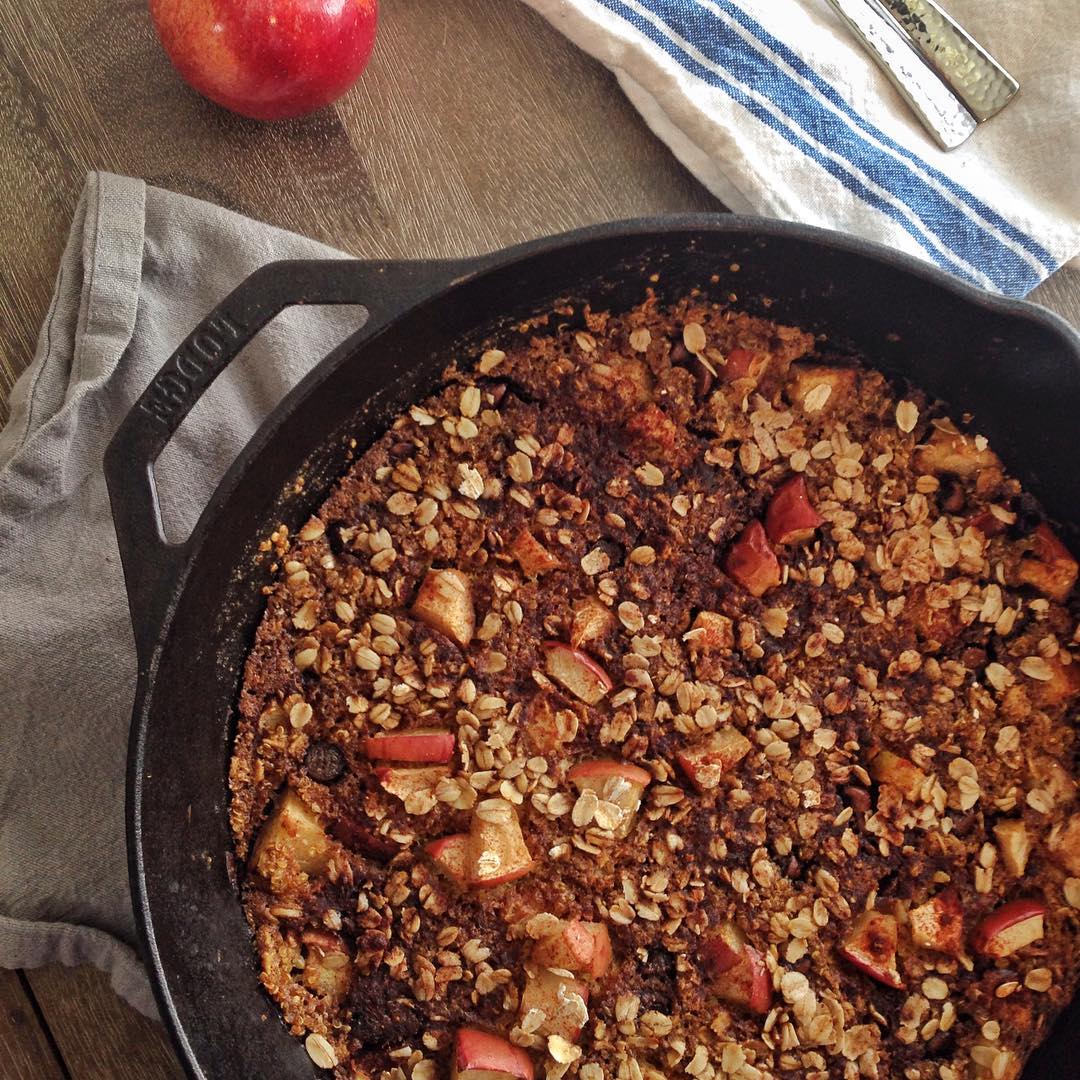
Prioritizing that Healthy Fat
Polyunsaturated fats play a large role in our heart health! EPA and DHA, specifically, are polyunsaturated omega 3 fatty acids that our bodies don’t make efficiently. More on that below!
A shorter chain omega 3 fatty acid, alpha-linolenic acid (ALA), is prominent in our diets.
However, ALA does not have the same benefits as the omega 3 fatty acids, EPA and DHA. One function of ALA is to convert into EPA and DHA, though in humans, this conversion is not efficient nor enough.
Therefore, it’s a good idea to incorporate direct sources of EPA and DHA into our diets. Both EPA and DHA are known to help with inflammation, they can help maintain blood pressure, and DHA has some further brain development benefits as well.
DHA and EPA are found in fatty fish, like salmon and tuna, and some nuts and seeds. Aside from food, you can also get through them Omega 3 supplements.
The general recommendation for EPA and DHA is between 250-500 mg/day, but that number may be higher depending on your health conditions.
I recommend talking with your doctor for your specific needs, and you do need to be careful if you are on blood thinning medications.
Make sure you’re finding a supplement with sufficient concentrations of EPA and DHA. A 1,200 mg supplement of fish oil doesn’t equate to 1,200 mg of EPA or DHA.
Other good food sources…
- Chia Seeds
- Hemp seeds (like in these bars)
- Flax Seeds & Flax Oils
- Salmon and seafood (THESE!)
- Nuts (specifically walnuts)
More reasons to include a variety of foods in your diets, as these examples of what a dietitian eats in a day helps convey.
Nutrition really plays such a vital role in our bodies, how we feel, and how our bodies perform for us. As mentioned, I take an omega 3 supplement daily.
My diet isn’t perfect and sometimes I’m not getting the recommended two servings of fatty fish/week.
Other Heart Health Tips
- Refrain from smoking
- Manage your stress
- Moderate your alcohol intake (yes, 1 drink a day may have heart healthy benefits, but you’re losing those benefits with heavy drinking)
- Keep an eye on your sodium intake, especially if you have a family history of hypertension (Ideally, 1500-1800 mg/day)
- Eat more potassium-rich and magnesium-rich foods
- Eat a variety of foods
- Limit saturated fats
- Keep an eye on added sugars
Lifestyle plays such an important role in our health – are you constantly stressed? Do you take time to yourself? Are you doing what you love?
These are all tough questions but ways we can mitigate stress and frustration can help with our heart health, believe it or not!
How do you work on your heart health? Focus on these health promoting habits!
Support Bucket List Tummy






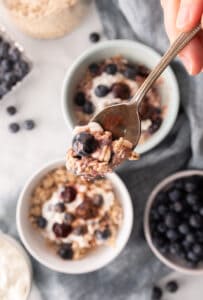


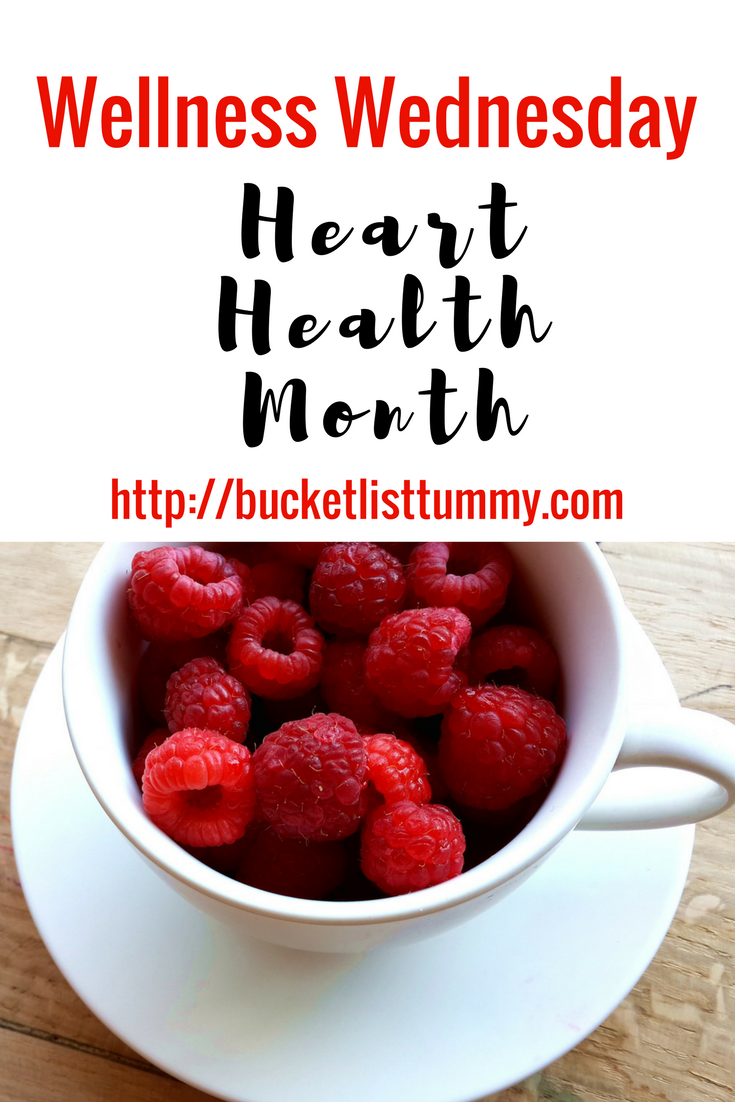


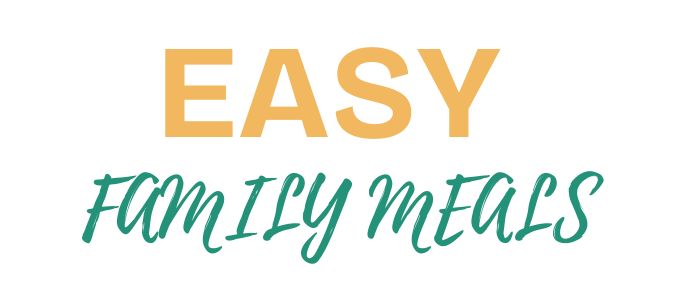
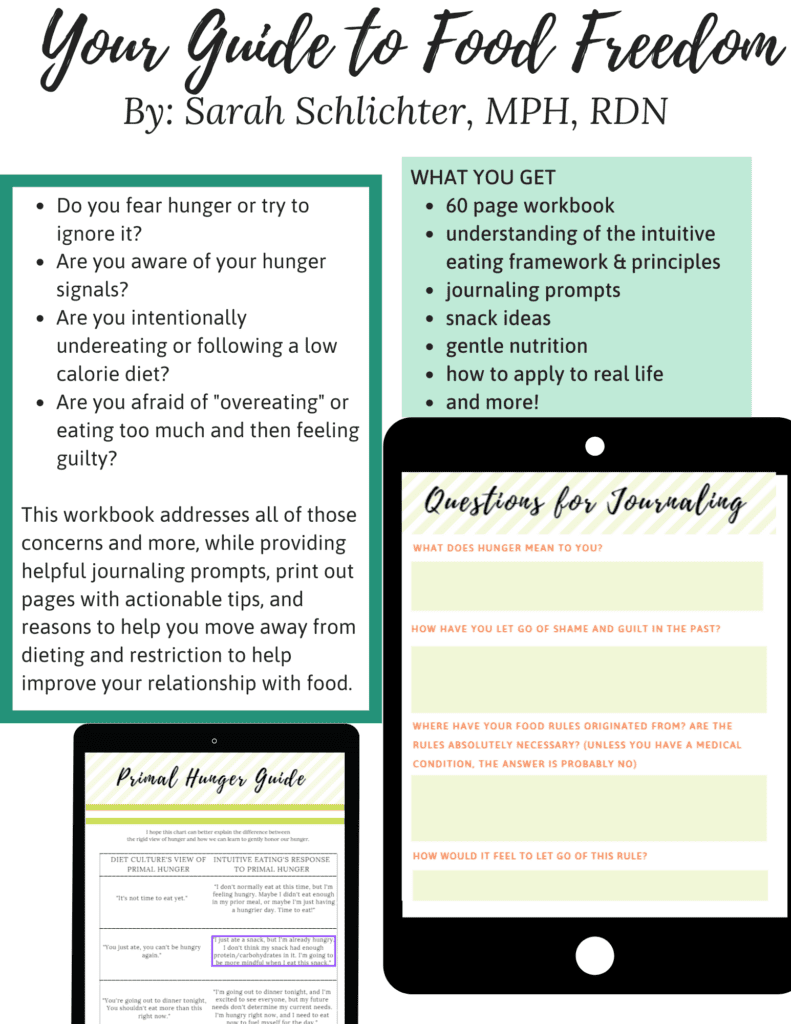
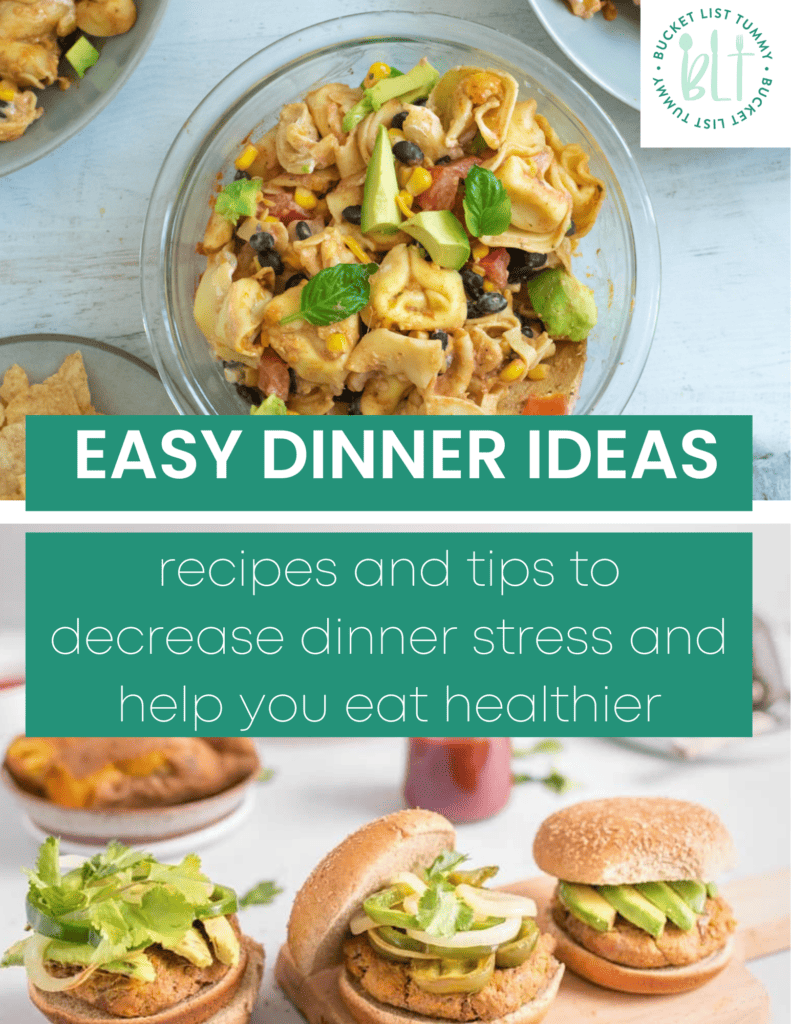








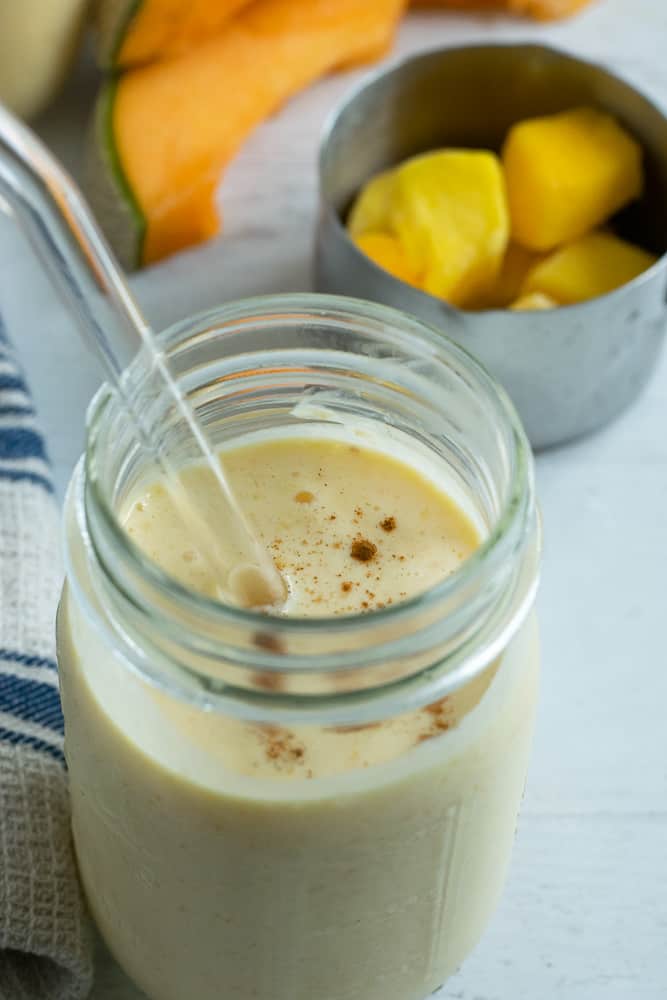



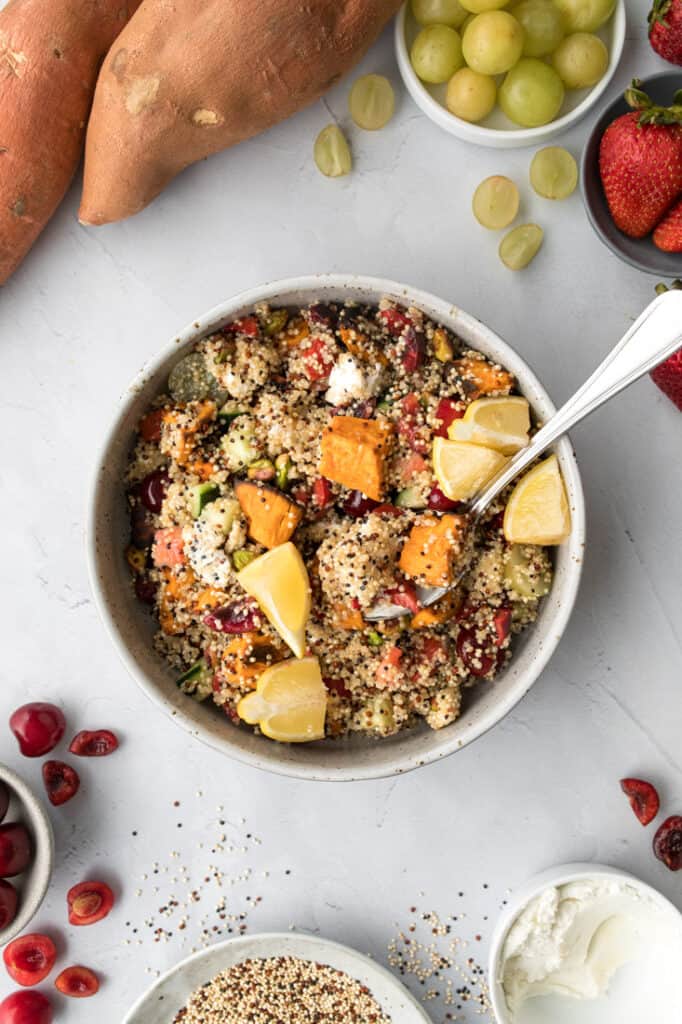

Like This Content?
Support Bucket List TummyI take a supplement for omega 3s because I don’t get enough through food. And even though I exercises every day I could still work on getting more movement into my day. Its so hard to take breaks from sitting at my desk at work, but I know its so important!
I’m consciously trying to decrease sedentary time and increase time standing. It’s a challenge!
These are such great tips! Heart health really is soooo important – and something so many people (even “healthy” people) overlook!
So true, it’s easy to overlook when we focus on other things!
I absolutely need to get more omegas into my diet– I rarely eat fatty fish! I’m good on fiber, that is for sure. A little TOO good, hah! In terms of exercise, I nail that- I’m always working my heart to keep it strong!
Sounds like you are doing well with fiber and exercise!
So does it matter whether you eat a lot of insoluble or soluble fiber? I don’t do as well with insoluble fiber sources, but I do love fruits and veggies. Also, I loved learning more about heart health. I love healthy fats, and I also love to get in some fun movement. I’m so thankful God gave us so many different things to promote heart health; He’s truly made our bodies so fearfully and wonderfully.
I can’t wait to hear about Austin; I was hungrily following along with all the delightful eats.
You ideally want both soluble and insoluble, as they each have different functions and purposes. Soluble fiber slows digestion to help keep you full, while insoluble can help speed things through digestion and helps with constipation. Some people experience more negative symptoms with certain fiber sources.
I used to take some sort of fish oil supplement (I hope it was a good one) but have just recently been really feeling the motivation to get back on that. Not that I’m worried or feeling anything negative, but I just know those fats are hard to get in the diet and are super good for brain function, skin and hair etc… yeah? I’ve been trying to go back to my research on what type of supplement to get – its always SO confusing – so this timing is ironically perfect. Thank you for the link and info on what to look for. Makes sense.
My entire family has LOW blood pressure. Its very much genetic and each of our doctors are like… hmm… when we have our check ups. I often wonder about the negative health consequences of this other side of things.
Supplements are VERY confusing. I recommend finding one that is third party tested, with labels like NSF, USP or “consumer lab.”
I have a little trouble eating enough fiber unless I plan for it, but I like to exercise 5 days a week and to eat heart healthy food so there’s a little bad, but mostly good. Thanks for the tips!
I find portable fruits and veggies the easiest way to eat my fiber. And oatmeal, of course 🙂